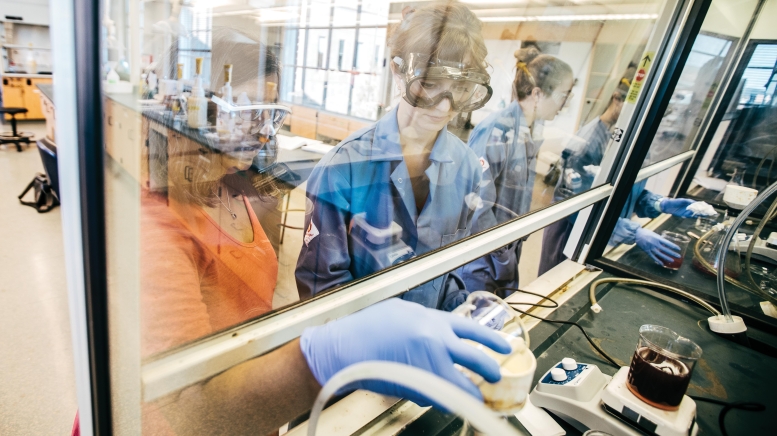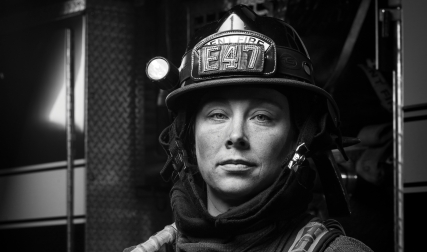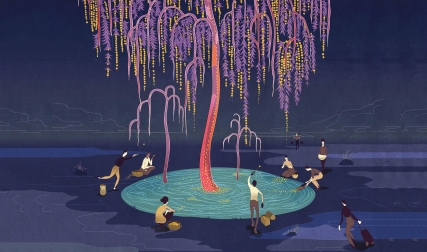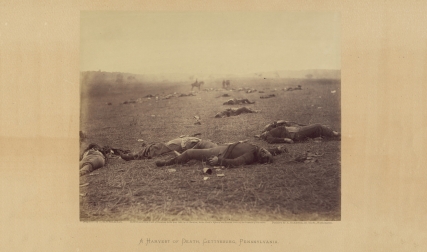On a special evening each spring, you’ll find the Berry Library corridor lined with undergraduates dressed to impress. Behind them are elaborate display boards showcasing their senior honors thesis projects. Regardless of the paths these students intend to pursue after graduation, all are eager to share their work and extol the virtues of their undergraduate research experience.
Of course, seniors in the honors program aren’t the only students who conduct research at Dartmouth.
Our teacher-scholar model affords students at all levels unprecedented opportunities to engage in knowledge creation. They work alongside scholars on some of the foremost issues of our time and pursue their own original research with the support of our distinguished faculty. Occasionally, this leads to some truly exciting discoveries.
Last fall a group of undergraduates experienced the thrill of a lifetime when it discovered a 2-million-year-old fossil on a dig in South Africa with anthropology professors Nate Dominy and Jeremy DeSilva.
Charlotte Blatt ’18 experienced a similar feeling. During her Sophomore Summer, she took a seminar with Jeff Friedman of the government department and wrote a paper critiquing one of the most celebrated military strategies in modern history—the 2007 U.S. troop surge in Iraq. To her delight, it was eventually published in Parameters, the top peer-reviewed journal of the U.S. Army War College.
As monumental as these accomplishments are, the most lasting positive effects of undergraduate research lie not in the end result, but in the process itself.
The most meaningful part of Blatt’s experience came when she had to extensively revise her article before it could be published. For students on the dig, it was seeing just how much work—and luck—is involved in making such a rare discovery.
Some think Dartmouth must choose to focus on research or education. That’s a false choice. Undergraduate research, directed by faculty who are pushing the frontiers of knowledge, is one of the most powerful experiential learning opportunities we provide on our campus. It is a way for students to exercise and hone the very skills a liberal arts education seeks to cultivate. It involves asking the right questions and working independently and as part of a team. It requires being resilient and resourceful in the face of setbacks. Students must also build relationships and learn how to draw meaningful conclusions and communicate those conclusions effectively. I can’t think of a better or more timeless set of intellectual skills to instill in our graduates. Students who have participated in undergraduate research agree, consistently rating these experiences as among the most valuable of their college careers.
That’s why a key focus of our efforts and a high priority for our fundraising is to increase undergraduate research opportunities across disciplines and generations as never before. New institutes are providing the infrastructure necessary to support such endeavors, and initiatives such as the academic clusters are attracting distinguished faculty to campus who approach common themes from different fields and deeply involve undergraduates in their work.
Students truly soar under the direction of Robyn Millan, an associate professor of physics, and not just because she’s involved in understanding the earth’s atmosphere through high-altitude balloon experiments. Millan oversees student research at the undergraduate, graduate and post-graduate levels. In addition to teaching, she’s led students on expeditions to Antarctica and has seen, first-hand, what undergraduates take from the research experience.
“There’s a feeling of ownership inherent in research that’s different from what they can get in the classroom,” says Millan. “They’re doing something new that nobody’s ever done before. It’s really rewarding for students to know they’re not just passive learners anymore.”




